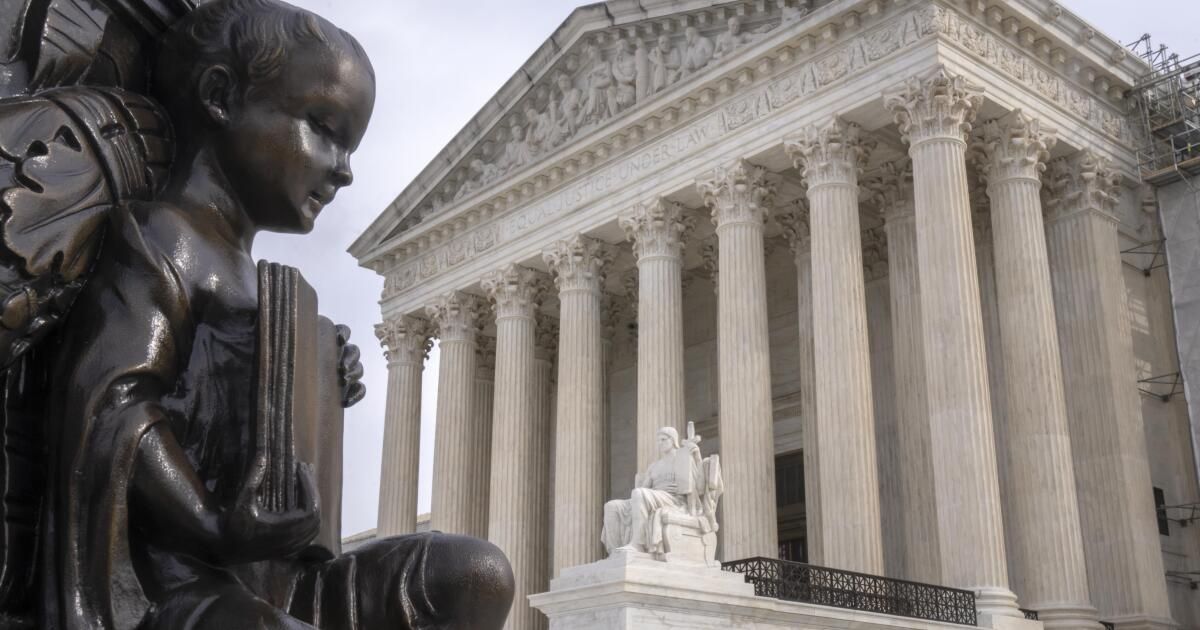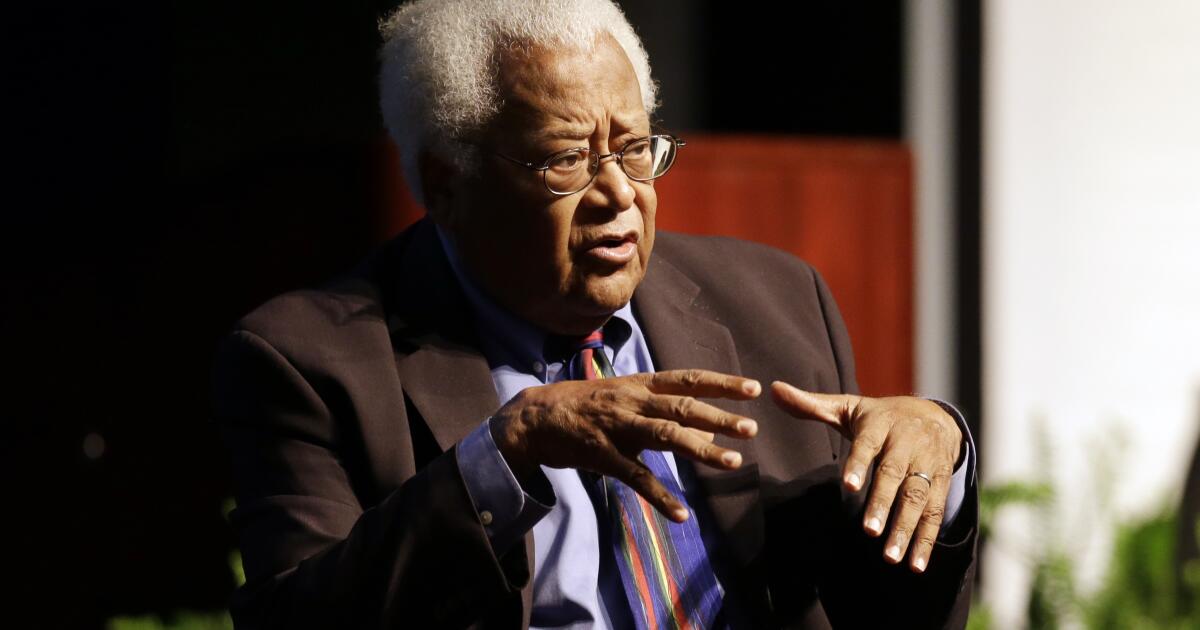The first and easiest question to answer regarding the package of Supreme Court reform measures President Biden announced Monday is whether there is any hope that the current Congress will pass or enact them.
There is no.
With Congress hopelessly polarized and the Supreme Court hopelessly politicized, there is no chance of action on Biden’s proposals in the coming months, and the administration understands that point well.
In fact, even before Biden unveiled them in a speech at the LBJ Presidential Library in Texas, House Speaker Mike Johnson, a Republican, declared them “dead on arrival.”
So why choose to introduce them now? After all, Biden has staunchly resisted calls from progressives to try to reform the Court, and has been under pressure since taking office, because President Trump had just tilted the Court to the right by appointing three justices.
The simple explanation for the timing is to make the Supreme Court, arguably the most unpopular of all federal government institutions, the focus of the election, which would presumably tilt voters toward Vice President Kamala Harris.
It was no surprise (and presumably exactly what Biden and Harris wanted) when Trump came out with a strident defense of the court.
But the proposals should not be dismissed as mere political gestures. Biden and the Democrats are also thinking long-term, seeking in particular to make the Supreme Court a campaign issue. Then, if they win control of both chambers and the White House, they can present their election as a mandate for substantial reforms.
Biden’s proposals focus on three basic areas. First, ethics, in response to the series of scandals involving provocative or overtly partisan conduct by Justices Clarence Thomas and Samuel Alito. Second, length of service and the method of appointment, which Biden proposes changing to 18 years per justice and a fixed allocation of two new justices per presidential term. And third, the court’s recent, surprisingly broad opinion on immunity in the January 6 prosecution of Trump initiated by the Justice Department.
Biden announced the reforms in an op-ed in the Washington Post that, interestingly, began with the decision on immunity, which Biden said violated a fundamental principle of the nation: “No one is above the law.”
Indeed, that is the case, but Biden and Harris, who rushed to back the proposals, have obviously calculated that of all the court's recent unpopular actions, the immunity decision is the one that most offends the majority of American voters who might lean toward Harris.
Biden’s proposal acknowledges that the decision can only be overturned by constitutional amendment. I think that’s dubious; a careful reading of the Supreme Court’s sweeping decision on immunity suggests that it is ultimately anchored in perceived principles of good government masquerading as constitutional law.
The problem here, as in one way or another with all proposals, is the firmly entrenched principle that the Supreme Court has the final say. (One thinks of Justice Robert Jackson's famous line: “We are not final because we are infallible, but we are infallible only because we are final.”)
This then leaves the famously cumbersome process of a constitutional amendment, which requires two-thirds of both chambers or the states to request it and three-quarters of the states to ratify it.
The most recent constitutional amendment, the 27th, took more than 200 years to be ratified. The Equal Rights Amendment, first proposed in 1923 to guarantee the rights of Americans regardless of sex, has yet to be passed.
The ethics provision in Biden's package probably has the best chance of passing. Clearly, Supreme Court justices, alone among government officials, can create and apply their own rules on issues such as whether they can accept or must disclose gifts from parties who may have an agenda with the court. Although the court adopted ethics rules for itself last fall, They have no teethLast week, Justice Elena Kagan called for the rules to be subject to a separate enforcement regime than that of the judges themselves.
But in my view, the most important component of Biden’s package is his proposal to change Supreme Court terms from life to 18 years and, at a consistent pace over that period, guarantee each president exactly two appointments.
The goal of the reform is to avoid the apocalyptic character of today’s confirmation battles. Lifetime appointments carry a lot of risk, leading to carefully selected, relatively young candidates who can serve for 40 years or more and have enormous and lasting influence, as is the case with the relatively young group of Trump appointees.
Term limits would prevent the imbalance that results if one president makes many appointments and others make few. Democrats are understandably frustrated by the bad luck – and Republican Obstructionism — which allowed Republican presidents to choose six of the nine current justices, in a country where more people identify as Democrats than Republicans and where Democratic presidential candidates have won the popular vote in seven of the last eight elections.
This proposal would do nothing to alleviate the current imbalance. Progressives had been pushing Biden to instead propose four additional Supreme Court seats to undo the current ultraconservative blockade. The Constitution allows for such an expansion, but the history of FDR’s plan to expand the Supreme Court and similar efforts obviously convinced Biden that the approach would saddle the package with political controversy and low odds that would diminish the clean appeal of the rest of the provisions.
As for the Supreme Court, today's proposals only reinforce the grave loss of confidence it has generated through its own excesses. As a matter of raw power, it can continue on its path and remain oblivious to the many wounds it has inflicted on itself. But the history of the Supreme Court teaches that, whatever its acknowledged authority in individual cases, it cannot be sustained indefinitely acting against the grain of the American people.
Like Alito saying In an overheard comment, “one side or the other is going to win.”
Harry Litman is the host of the show Podcast “Talking to the Feds” and the “Speaking of San Diego” Speaker series. @harrylitman











